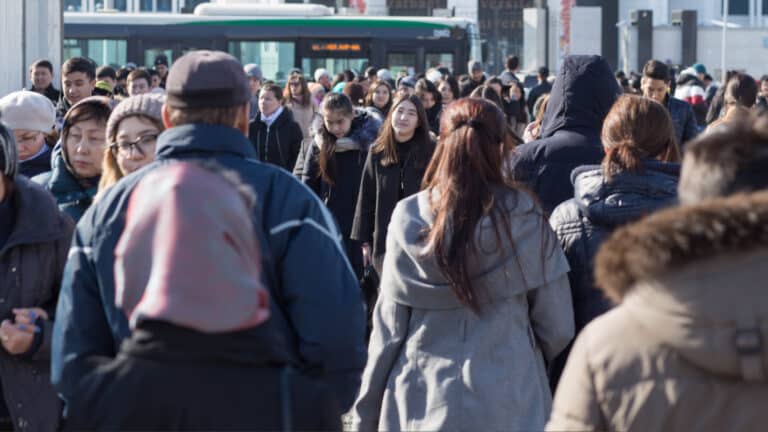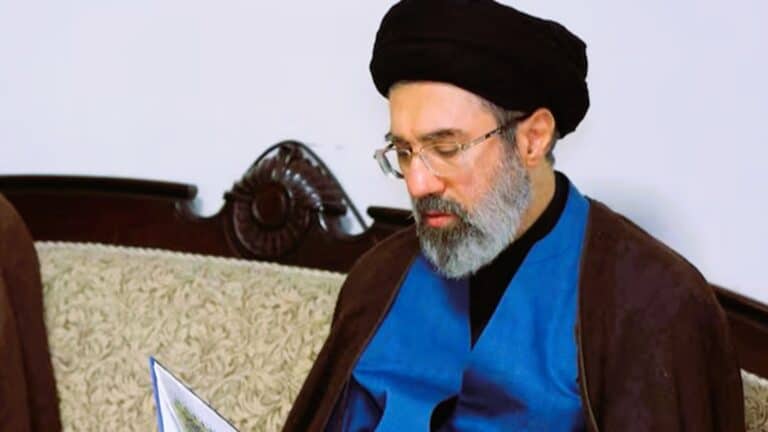This year’s unemployment rate in Uzbekistan is 9.4%, according to the country’s Ministry of Employment and Labor Relations. Youth and women count for the largest share of these unemployed people. For example, 12.8% of Uzbek women are unemployed. The United Nations Development Programme (UNDP) in conjunction with other international organizations and Uzbekistan’s state bodies has been implementing several projects aimed at facilitating women in acquiring new skills and getting a job.
Digital Transformation
In 2015 the General Assembly of the UN determined the 17 Sustainable Development Goals (SDGs) as a tool in getting a shared blueprint for peace and prosperity for people and the planet. The document calls for action by all countries, both developed and developing, in a global partnership, which the UNDP has focused on in all countries it works with.
One of the projects initiated by the UNDP in Uzbekistan is the implementation of the EU-funded project «Improved Public Service Delivery and Enhanced Governance in Rural Uzbekistan.» This is a joint project by the Agency of State Services, the Ministry of Justice, the EU and UNDP, which has determined seven districts from all over the country to host innovative public service centers (PSC). The project has been implemented since 2019 in the regions of Surxondaryo, Qashqadaryo and Nurafshon. Within the project, its stakeholders implement different tasks: the state agency builds centers and hires staff while the UNDP and the EU provide the centers with office equipment and staff training.
«The UNDP and the Agency of State Services are developing a five-year strategy for the future development of public services in Uzbekistan. Once the strategy is adopted, the entire system of PSC will be able to follow step-by-step instructions in its routine operations. For example, the strategy suggests eliminating excessive administrative procedures and raising the efficacy of communication between state agencies via digital means of communication. This is necessary for better coordination between the government’s bodies and other entities. We need this for introducing new forms and methods of delivering public services in the country,» said Matilda Dimovska, the UNDP Resident Representative in Uzbekistan.
.jpg)
Matilda Dimovska, the UNDP Resident Representative in Uzbekistan
So far, the network of PSC spread all over the country delivers 162 types of services while three years ago there were just 37 such services. To optimize the centers’ operation, the authorities have produced 129 legislative acts and adopted 100 administrative rules on exactly how public services must be delivered. As a result, the number of documents required by law has decreased from 181 to 86. The government has built 150 buildings for PSC. Seventy of them were built via a public-private partnership. In addition, about 40 new centers are now under construction. Moreover, public services are now available in both remote and highly populated districts through 141 PSC representative offices. In small villages, people can rely on mobile PSC.
In 2021 pilot centers in Dehqonobod (the Qashqadaryo region) and Shurchi (the Surxondaryo region) became a ground zero for a new type of organization where volunteers help people with disabilities, old people and women with young children to get these public services.
To raise entrepreneurs
Facilitating the development of businesses is the key task for public service centers. Over the last three years, the official procedure for the registration of a business was seriously simplified. The number of documents required from those who wanted to start their own business has been decreased. Moreover, in the pilot public service centers that were opened within the joint project, people can talk to business consultants and even ask for help from professional psychologists.
The development of women’s entrepreneurship is another area where the pilot centers are engaged in.
«In pilot areas of the joint project, we’ve launched Women Advisory Groups (WAG) to offer women and vulnerable groups free access to public services. The operation of WAG is supported by MARTA, a women’s rights advocacy institution from Latvia. The center runs educational programs for girls and women aimed at providing them with skills and expertise they can rely on in their professional and public life,» said Abror Khodzhaev, head of the joint project.
MARTA Centre is a nonprofit organization from Latvia, which has been working in Central Asia since 2009. The key direction for the center is the promotion of gender equality and women’s rights advocacy. The center’s projects have been financed by the European Commission and the Foreign Ministry of Latvia. In Uzbekistan, MARTA works in conjunction with the Civic Initiatives Support Center, a local nonprofit organization that has coordinated gender equality and women entrepreneurship issues in the country since 2004.
.jpg)
Talent in sewing
Gulchekhra Fakhredinova from the village of Varzik in the Chust district (the Namangan region) is one of the attendees of the educational program.
After being a biology teacher in the local school, she and her brother spent 10 years in Moscow as workers. Like many other Uzbek women, Gulchkhra is very good at sewing. Moreover, her father was the director of a big textile factory in the Soviet period. Once her father died she and her brother decided to return to Uzbekistan and launch a sewing business.
The aspiring businesswoman then took a loan and established Varzik Textile company.
«I had neither business experience or expertise and it took a long time to just step up and take action. Even though I had never run a business, I always wanted to do so. I needed to gather a pile of documents and visit PSC to make a registration of my business. But I heard that there is a mobile PSC, which comes to visit our village from time to time. At first, I just wanted to ask for advice but they helped me with documents and my business was registered in literally 30 minutes,» said Gulchekhra Fakhredinova.
Now the sewing company she runs is one of the biggest both in the village and the entire district. The entrepreneur has more than 100 employees, most of whom are women. All of them can rely on social benefits that the company provides in accordance with the Labor Code. Some workers in the sewing workshop are former schoolgirls who attended biology lessons by Gulchekhra in the school. Now she teaches them how to sew.
Recently, the firm has received a big order from Kazan, Russia. To meet the schedule the company has to sew 80,000 sheets and towels a month or 2,500 items per day.
«To fulfill the constantly growing number of orders, we have to increase our capacity. Now we are looking for extra room for the factory. There is a land parcel near our workshop, and we are negotiating with khokimiat to get this land. We have no problems with hiring people as many women in the village can sew. On the other hand, it’s not so easy to find other jobs out there,» said Gulchekhra Fakhredinova.
With her brother, the woman bought land where they have planted fruit trees and vegetables. They plan to export these agricultural products abroad.
.jpg)
Gulchekhra Fakhredinova, an entrepreneur
According to Akbarzhan Yakubov, head of the Public Service Center in the Chust district, the center has been working for more than four years and locals have gotten used to it. Even those who live in remote areas have access to public services through so-called mobile PSC. Usually, this is a bus or minibus equipped with some office appliances and internet connection where people can get their tasks done. The government continues to open new PSC across the district and more and more residents of Chust are going to launch a business like sewing workshops, hairdressing saloons or cafés.

Everything for women
The project of digital transformation of the public service sector isn’t the only initiative in the area of gender equality by the UNDP in Uzbekistan. To promote sustainable growth in the country, the representative office cooperates with various Uzbek ministries and international organizations.
For example, the UNDP and the Ministry of Employment and Labor Relations have launched a new project aimed at raising the employment rate among youth. The governments of Russia and Japan have been giving financial support to the project. Thus, 34 entrepreneurs, most of them women, donated sewing equipment that cost $110,000 in total.
In conjunction with the Ministry of Support of Mahalla and Family, the UNDP is carrying out yet another project aimed at expanding the rights and capabilities of women to participate in public governance and play a more active role in social-economical life. Thanks to the Canada Fund for Local Initiatives, female entrepreneurs in the Sirdaryo region received equipment for sewing workshops, hairdressing salons and pastry shops. Within the project, more than 100 jobs for women and youth have been created.
Also, they established a Crafting Training Center where women may learn how to sew and design clothes, how to cook and so on. As of today, more than 1,500 unemployed women have been trained here; most of them have already found their jobs.
.jpg)
Mentors for Tutors
As the UNDP told the Kursiv edition, one of the main problems for the organization is that women are often unfamiliar with programs the UNDP runs for them. Many of them just couldn’t overstep their fears and launch a business. To address the issue via the Facilitating Trade in Uzbekistan program, the UNDP runs together with the Ministry of Investments and External Trade (MIET), an additional program aimed at training mentors and tutors to lead women entrepreneurs and youth.
«The main goal for the mentoring program is to widen capabilities of women and young entrepreneurs in launching businesses. They need support from experienced mentors. As we expect, once female and young entrepreneurs are ready to start their business, they will do that in the agricultural sector,» said Matilda Dimovska.
Moreover, the UNDP and MIET organize trainings for female and young entrepreneurs from rural areas. The first training workshops for more than 80 participants were organized in Qashqadaryo and Surxondaryo regions. People who have already run businesses have been trained on how to support complete newcomers and share their expertise and knowledge with students.
«This is not a one-off event; this is a series of trainings and workshops where pupils can achieve clear and real results under the supervision of their mentors. This would provide women who run businesses in rural areas with long-lasting support in the expansion of business, production and sales,» said Dilshobek Otaboyev, business coach and head of the group.
This joint project by the UNDP and MIET is also supported by the Russian government. The main goal of the project is to facilitate Uzbekistan’s accession to the WTO, promoting trade and boosting the county’s the production and export potential.













